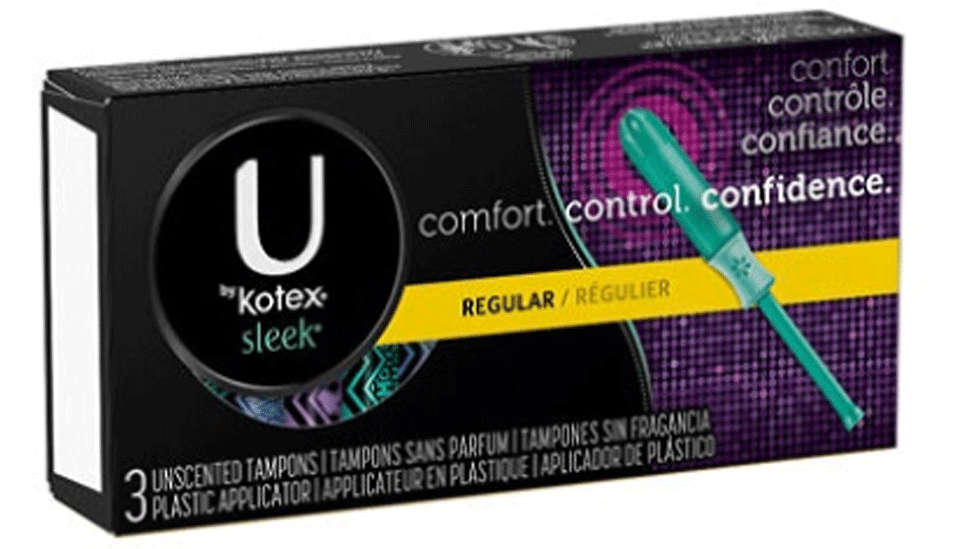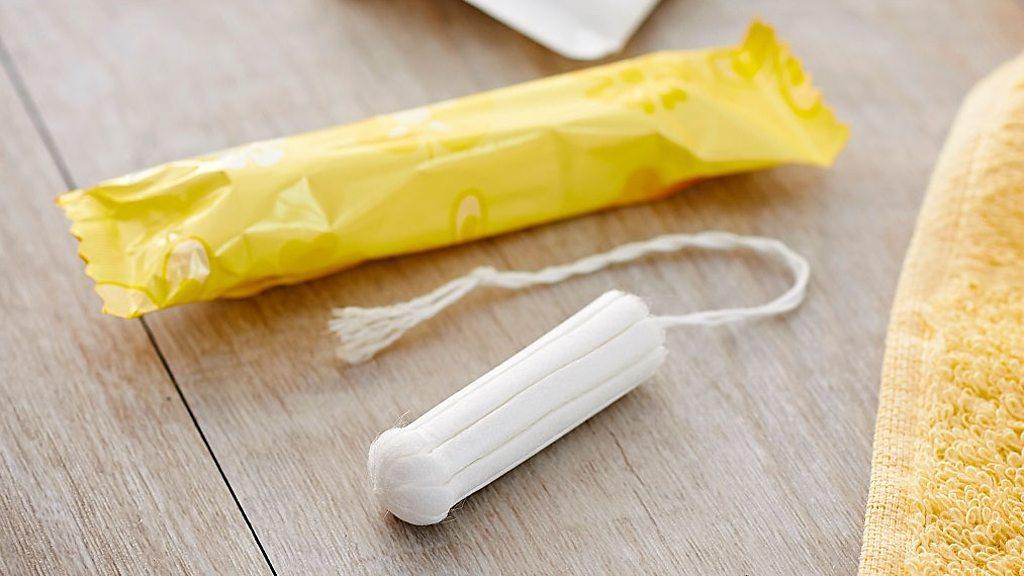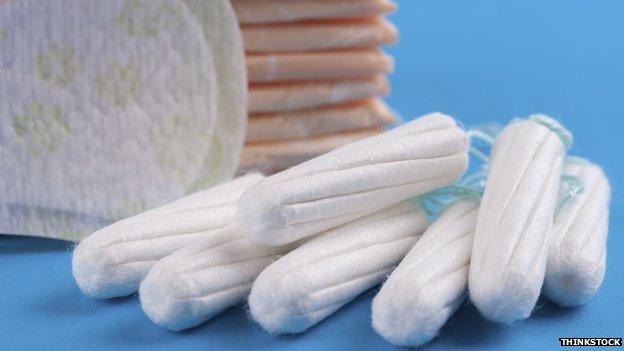US recall after women say tampons 'unravel' during use
- Published

Women have reported some Kotex tampons unravelling upon removal
A US tampon manufacturer has announced a recall of some products after complaints of tampons unravelling and becoming stuck inside women's bodies.
Kimberly-Clark said they had received reports of Kotex Sleek tampons "coming apart", causing some users to require medical help removing the pieces.
The press release on Tuesday said any women with vaginal pain, bleeding or irritation should see a doctor at once.
Toxic shock can sometimes occur if tampons are left inside for too long.
According to a statement from Kimberly Clark, external, there have been "a small number of reports of infections, vaginal irritation, localised vaginal injury and other symptoms" due to the "quality-related defect".
The specific products under recall are only regular absorbency U by Kotex Sleek tampons manufactured between 7 October, 2016 and 16 October 2018, distributed between 17 October, 2016 and 23 October, 2018.
Kimberly-Clark also urged any women experiencing hot flushes, abdominal pain, nausea or vomiting after using the tampons to seek medical attention immediately.
The company statement includes product codes consumers can look for to ensure they do not use any recalled tampons. Retailers are pulling the faulty tampons from shelves and including notices in stores.
In a FAQ on the U by Kotex website, external, the company said they "are putting systems in place to prevent the occurrence of similar issues in the future".
The recall sparked concerns about toxic shock syndrome (TSS) - a condition largely attributed to faulty tampons that affected hundreds and killed dozens of US women in the early 1980s, external.
The highly absorbent tampon materials used at the time led to women developing a serious bacterial infection.
According to Mayo Clinic, TSS can cause high fevers, rashes, liver and kidney problems, difficulty breathing, and even death.
Between only one and three women in 100,000 are now, external are affected by TSS in the US, and it is not always due to tampon use.
The Food and Drug Administration (FDA), which manages tampon safety standards, cautions that using very absorbent tampons or wearing one for longer than recommended can increase the risk of developing TSS.
- Published11 November 2018

- Published18 November 2013

- Published14 September 2016
